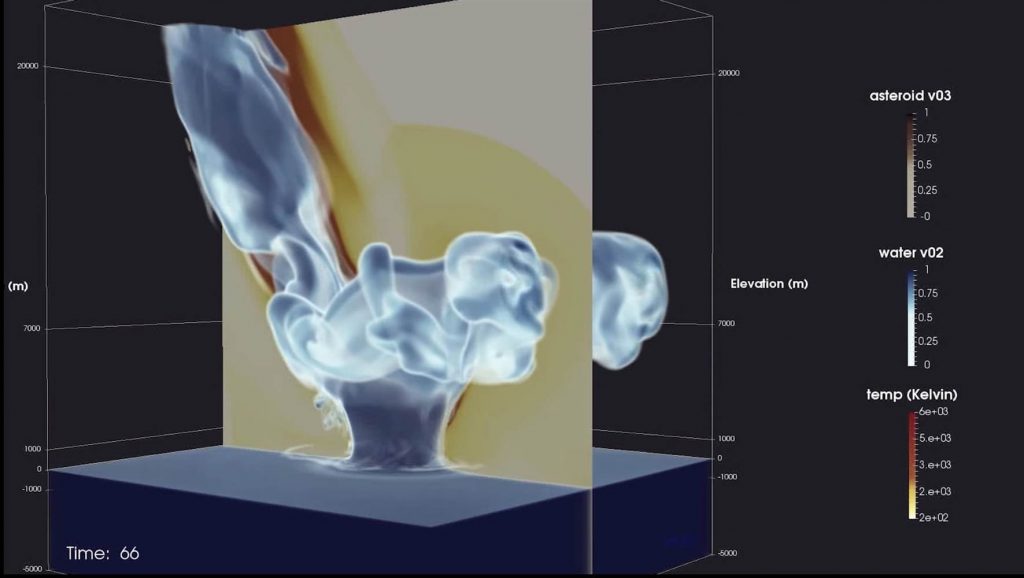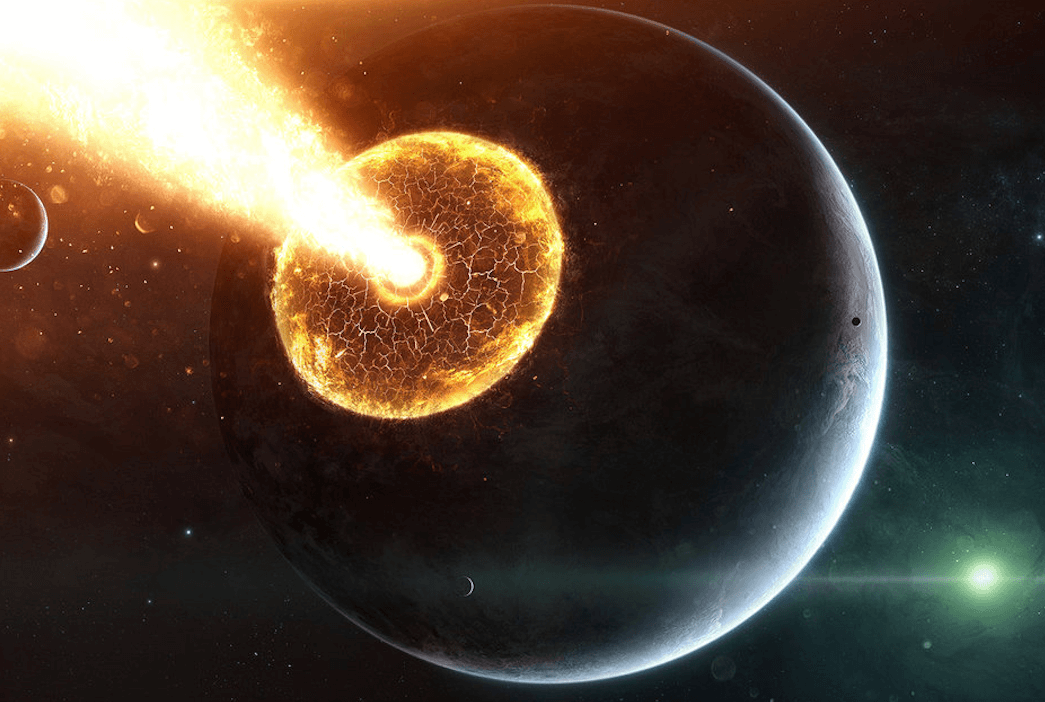A new study on asteroids suggests that Hollywood may not always get it right, especially when it comes to ocean impacts. In most blockbuster movies, when an asteroid hits the middle of the ocean it produces a humungous wave that goes on to destroy the coastal cities and wipe out everyone that’s caught in them. But new research reveals that real asteroids don’t create this huge splash because the crash uses up most of its energy throwing water into the atmosphere opposed to making tidal waves and tsunamis.
According to NASA’s Jet Propulsion Laboratory (JPL) once in around 10,000 years or so, large objects (those bigger than 328 feet/100 meters) will crash into the planet. Considering that 70 percent of the Earth’s surface is water, the most likely landing spots for these asteroids is the ocean. Galen Gisler studied the physics of geological processes at Los Alamos National Laboratory and was asked by NASA to calculate the smallest of the asteroids they ned to be concerned with.
After several months and 11 simulations later, Gisler found that around 80 percent of the energy from an impact is used vaporizing water and forming a crater while the other 20 percent shoots water up in the atmosphere where it may affect weather patterns. Unlike Hollywood movies, it’s estimated that only a tenth of 1 percent of this energy is used to create waves. The study also revealed that those asteroids most likely to cause real problems were these sized around 460 feet (140 meters) or larger.

Gisler advises that if an asteroid impact is within 60 miles (100 km) or so of the shore then impact to the coast would be significant, but any farther than this and the huge waves would form quickly then simply break up in the ocean before reaching shore. “It’s very ineffective at actually producing a wave,” says Gisler. “The waves just don’t propagate very well.” So while asteroid impact can cause havoc when it happens close to the shore if you’re more than 100 kilometers from the shore, you should be pretty safe.
Related Links;
- New Asteroid Study Suggests Hollywood Is Wrong About Ocean Impacts / NBC News
- NEO Basics: Target Earth / NASA











